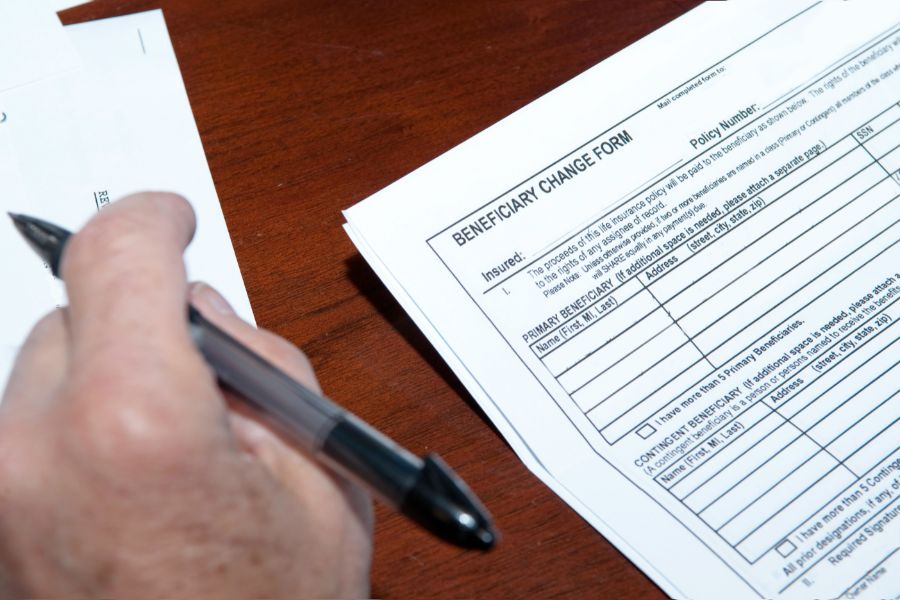What To Know Before Making a Will
Creating a will is a fundamental step in ensuring that your assets and estate are distributed according to your wishes after you pass away. It is a legal document that allows you to specify who will inherit your property, take care of any minor children, and handle other personal matters. Considering your personal circumstances is crucial, as it helps tailor the will to your unique situation and needs.
Without a will, your estate will be divided according to the rules of intestacy, which may not align with your preferences. This guide aims to provide you with essential information on what you need to consider before making a will, ensuring that your final wishes are respected and your loved ones are cared for. Additionally, will-writing services provided by solicitors and online platforms offer benefits such as fixed fees and convenience, making it easier to create a straightforward will.
Understanding the Legal Requirements and Inheritance Tax
Before drafting your will, understand the UK legal requirements to create a valid document. Consulting a solicitor or legal professional in estate planning ensures your will is valid and enforceable.
Key legal requirements:
- • The testator (person making the will) must be of sound mind and at least 18 years old. A court may invalidate the will if the testator is not of sound mind.
- • The will must be in writing and signed by you in the presence of two witnesses, who must also sign it in your presence. Witnesses must be independent, not beneficiaries or married to beneficiaries, to ensure authenticity.
- • Clearly identify who will inherit your assets and how they will be distributed. Include the full legal names of beneficiaries and consider alternate beneficiaries if primary ones cannot inherit.
Providing clear instructions helps prevent confusion or disputes, easing the process of estate distribution for your loved ones.
Identifying Beneficiaries

When creating a will, it’s crucial to identify the beneficiaries. These are the individuals or organisations who will inherit your assets after you pass away. This can include family members, friends, charities, and even a civil partner.
Consider Who to Include
Carefully consider who you want to include as beneficiaries. You may choose to leave your assets to:
- • Family members (spouse, children, parents)
- • Civil partners
- • Friends
- • Charities
- • A combination of the above
Be Clear and Specific
To prevent confusion or disputes:
1. Prioritise immediate family members such as your spouse, children, or parents. Note that a spouse or civil partner of a beneficiary cannot act as a witness.
2. Consider close friends or extended family members
3. Be specific and use full legal names of beneficiaries
Age and Ability of Beneficiaries
Consider the age and ability of beneficiaries to manage the assets they will inherit:
- • For minor children, establish a trust or designate a guardian to manage their inheritance until they reach a certain age. It is crucial to consider parental responsibility when designating guardians, ensuring they are prepared to handle the responsibilities and plan for the children's welfare.
- • For adult beneficiaries, assess their ability to handle the assets and make necessary arrangements to protect their interests
Regularly Review and Update Based on Personal Circumstances
Regularly review and update your beneficiaries as your circumstances change:
- • Births, deaths, marriages, divorces, civil partnerships, and other significant life events can impact your decision regarding beneficiaries
- • Entering a civil partnership invalidates any previous wills made, which can have significant implications on inheritance rights, especially for unmarried partners who do not have automatic rights to inherit without a will.
- • Periodically reviewing and updating your will ensures it accurately reflects your current wishes and remains relevant over time
By following these guidelines, you can ensure that your assets are managed responsibly and according to your intentions, providing clarity and preventing potential disputes among your loved ones.
Outlining Specific Gifts and Funeral Wishes
Designate specific items or assets to individuals or organizations in your will to ensure your wishes are carried out and prevent disputes.
- • Detail Specific Gifts: Clearly state who should receive each item, including unique characteristics or sentimental value. E.g., for a vintage car, specify make, model, and any modifications.
- • Charitable Donations: Include the charity's full name, address, and registered charity number.
- • Alternative Beneficiaries: Include backup beneficiaries in case primary ones cannot accept the gift.
- • Regular Updates: Review and update your will to reflect changes in your life or relationships.
By being specific and keeping your will current, you ensure your gifts are distributed as intended.
Naming an Executor
Selecting an executor is a pivotal step in the will-making process. This individual will be responsible for ensuring that your estate is managed and distributed according to your wishes. Here are key points to consider when naming an executor:
Choosing the Right Person
The executor you choose should be trustworthy and capable of managing financial matters effectively. They will need to handle various tasks, including gathering all the assets of the estate, managing legal paperwork, settling debts and taxes, and ensuring that gifts and properties are appropriately distributed to beneficiaries.
Trustworthiness and Financial Capability: Choose someone who understands your financial situation and can make sound decisions.
Organisational Skill: The executor should be organised and detail-oriented to handle the responsibilities efficiently.
Handling Responsibilities: The role can be demanding, so it’s important to select someone who can manage the workload.
Considering Availability and Willingness
Being an executor can be time-consuming, so it's essential to choose someone who has the availability and willingness to take on the role. Discussing the responsibilities with the potential executor ensures they are prepared and willing to serve.
Time and Commitment: Ensure the person has the time to fulfil the responsibilities.
Willingness to Serve: Have a conversation to confirm their willingness and understanding of the role.
Clarifying Expectations: This discussion helps set clear expectations and prepares the executor for their duties.
Regularly Reviewing and Updating
Over time, circumstances and relationships can change. Regularly reviewing and updating your choice of executor ensures that the person named is still the best fit for the role.
Changing Circumstances: Life events can affect the suitability of your chosen executor.
Regular Updates: Periodic reviews help maintain the relevance and effectiveness of your will.
Ensuring Proper Execution: Regular updates ensure that your wishes are properly carried out, reflecting your current situation and relationships.
Avoiding Ambiguity and Confusion in a Will

Crafting a will that is clear and precise is essential to ensure your wishes are understood and followed. While expressing funeral arrangements in a will can provide guidance for family and executors, these instructions are not legally binding, highlighting the importance of communication to avoid disputes.
By focusing on clarity and regular updates, you can prevent potential disputes and misunderstandings among your loved ones. Here are some steps to help you achieve this:
Use Clear and Concise Language
To avoid any misunderstandings or disputes, it is important to use straightforward and unambiguous language in your will. Specificity is key when detailing the distribution of your assets.
- Avoid ambiguity by using straightforward language. - Be specific and provide detailed instructions regarding the distribution of your assets, including personal belongings or sentimental items. - Clearly state who should receive what and under what conditions, leaving no room for interpretation. - Document your funeral wishes to provide guidance for your family and executors, helping to prevent misunderstandings and conflicts regarding your funeral arrangements.Regularly Update Your Own Will
Keeping your will current is crucial as your circumstances and relationships evolve. Regular updates ensure that your will accurately reflects your most recent intentions and legal requirements.
- Update your will to reflect changes in your circumstances or wishes.- Life events such as marriages, divorces, births, or deaths may require adjustments.
- Regular updates help ensure your intentions are accurately represented and decrease the likelihood of confusion or conflict among your beneficiaries.
- Additionally, consider inheritance tax planning when updating your will to manage and minimise tax liabilities related to your estate.
Seek Professional Legal Advice

Consulting with a solicitor is a vital step in the will-making process. Their expertise ensures that your will is both legally sound and clearly articulated, helping you avoid common pitfalls.
- Consult with an experienced solicitor when creating your will.
- A solicitor can guide you through the process, ensuring your will is legally valid and clearly written.
- Professional advice helps you avoid common pitfalls and provides valuable insights based on their expertise.
- Consulting with a solicitor can also help you avoid paying tax unnecessarily by providing advice on inheritance tax planning.
- This guidance is invaluable in creating a will that effectively communicates your wishes and withstands legal scrutiny.
Frequently Asked Questions
What happens if I die without a will?
If you die without a will, known as dying intestate, your assets will be distributed according to the rules of intestacy. This often means your estate may not be distributed according to your wishes, and your assets may go to relatives you did not intend to benefit.
Can I write my own will without a solicitor?
Yes, you can write your own will, but it’s highly recommended to consult with a solicitor. A legal professional can ensure your will meets all legal requirements and help you avoid common mistakes that could make your will invalid.
How often should I update my will?
You should review and update your will whenever there are significant changes in your life, such as marriages, divorces, births, deaths, or substantial changes in your financial situation. It’s also a good idea to review it periodically, such as every three to five years. Regular updates help ensure that your will accurately reflects your current wishes and circumstances.
Can I disinherit someone in my will?
Yes, you can choose to disinherit someone in your will. However, certain family members, such as spouses and children, may have rights to claim from your estate under the Inheritance (Provision for Family and Dependants) Act 1975. Consult with a solicitor to understand the rules in your area and ensure that your will is drafted in accordance with legal requirements.
What is the role of a witness in a will?
Witnesses verify that the will was signed by the testator and that the testator was of sound mind and not under duress. Witnesses must not be beneficiaries of the will or married to beneficiaries to avoid conflicts of interest. The presence of witnesses helps to establish the validity of the will and can provide crucial testimony if the will is contested.
Can I make changes to my will after it’s written?
Yes, you can make changes to your will through a legal document called a codicil, or you can draft a new will entirely. Be sure to follow legal procedures to ensure the changes are valid. A codicil must be executed with the same formalities as the original will to be valid.
What is a living will, and is it the same as a regular will?
A living will, also known as an advance decision or advance directive, is a separate document that outlines your wishes regarding medical treatment if you become incapacitated. It is not the same as a regular will, which deals with the distribution of your assets after death. A living will can provide guidance to your healthcare providers and loved ones about your preferences for medical treatment.
What are the different will writing services available and their benefits?
There are various will writing services available, including solicitors, online services, and DIY approaches. Solicitors offer professional expertise and ensure that your will is legally sound. Online services provide a convenient and often more affordable option, with templates and guidance to help you draft your will.
DIY approaches can be the most cost-effective but carry the risk of errors that could invalidate your will. It's important to choose reputable will writing services to ensure clarity and professionalism, as the industry is not heavily regulated.
Conclusion
Understanding the important considerations before making a will is crucial to ensure your final wishes are honoured and your loved ones are taken care of after you're gone. By knowing the legal requirements, identifying beneficiaries, outlining specific gifts, naming an executor, and avoiding ambiguity, you can create a comprehensive and clear will.
Taking these steps provides clarity and peace of mind for both yourself and your loved ones, ensuring your estate is handled according to your wishes. This careful planning can prevent potential conflicts and ensure that your legacy is preserved in the way you intend.

